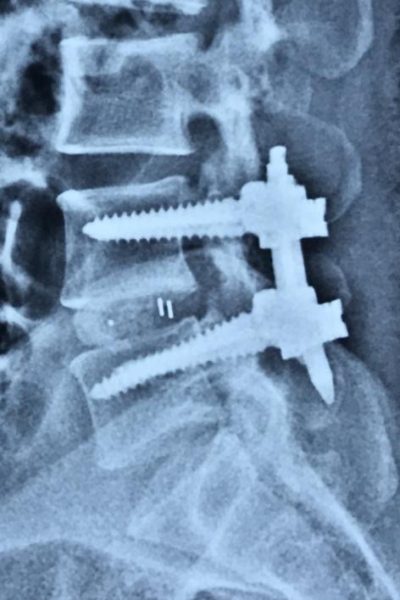Best Spine Surgeon in Mumbai | Dr. Amit Sharma

+91-9967600461
draks777@gmail.com
Do you need spine instrumentation/ fusion surgery?

Do you need spine instrumentation/ fusion surgery?
Spine Instrumentation and Fusion Surgery
Spine surgery can be divided in two broad categories: spine decompression surgery and spine instrumentation/ fusion surgery (mostly accompanied by spine decompression). A spine decompression surgery involves releasing pressure on the spinal cord, whereas in spine instrumentation surgery this is accompanied by instrumenting the spine using screws/ plate/ rod/ cage system. These are called spine implants.
In majority of the cases, especially in lower back, only a spine decompression surgery is usually required. However, there are certain situations in which spine instrumentation becomes necessary. Spine instrumentation is done to fix the spine in a particular position and to help instrumented bones fuse/ unite with one another using bone graft material for long term success.
In following situations a spine instrumentation surgery is required:
- To eliminate motion at any particular spinal level to cure pain originating from degenerated disc movements
- To bring slipped vertebra in position (spondylo-listhesis)
- To fix spine and give support in cases where significant part of spine is destroyed (e.g. spine fracture/ spine infection/ spine tumor)
- To correct spine deformity (scoliosis/ kyphosis)
- To maintain spine alignment after spine decompression surgery
Even though for majority of spinal problems there is consensus among spine specialists whether spine instrumentation is required or not for a particular case, there are situations where one spine doctor might recommend spine instrumentation surgery, whereas other will recommend a spine decompression surgery only. This happens due to difference in trainings, practice experiences and belief between different spine specialists.
One of the biggest advantage of spine instrumentation is as instrumented part of spine will not move any more, there is no possibility of further wear and tear at that level which can cause recurrence of symptoms in future at that particular level.
However, there are certain drawbacks of spine instrumentation surgery (though you have no option other than doing an instrumentation surgery in certain cases).
- A spine instrumentation surgery is costlier than a spine decompression surgery due to
- added cost of spine implant
- extra surgery time required for instrumentation
- possible additional hospital stay required with spine instrumentation surgeries (usually 1-2 days)
- Whenever a spine instrumentation is required, instrumented bones need to fuse/ unite with each other, otherwise spine instrumentation may break/ loosen from the bone and lead to further complications from failed implant (happens rarely).
- As instrumented level loses its movement, it might put extra stress on spinal segment next to it (as one of the primary function of the spine is to provide motion to neck/ back) and can cause accelerated wear and tear leading to early degeneration of that adjacent/ next level (not very common though).
- Some patients feel irritation/ pain in back due to spine instrumentation and stiffness due to loss of movement at instrumented level.